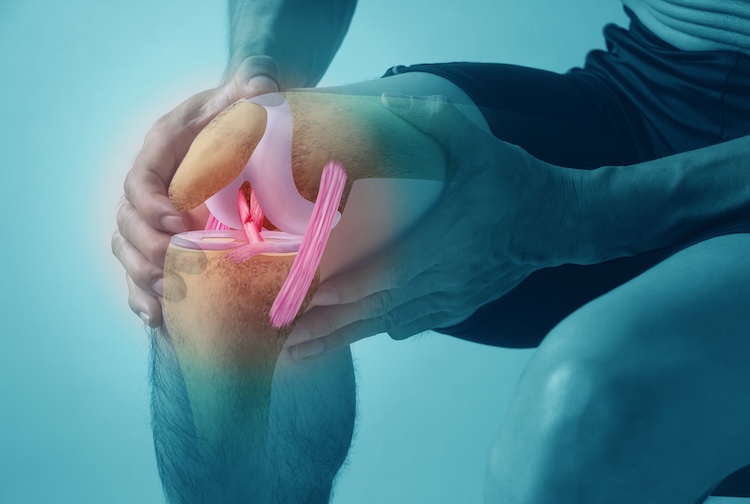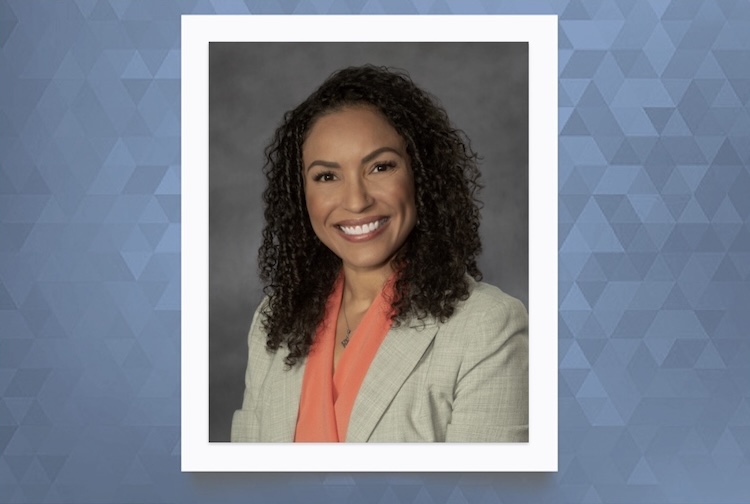Living with and letting go of anxious thoughts
As part of Mental Health Awareness Month, VCU Health team members share strategies to help manage anxiety.
May 19, 2023 Providers have seen an increase in patients experiencing anxiety and depression in recent years. (Getty Images)
Providers have seen an increase in patients experiencing anxiety and depression in recent years. (Getty Images)
By William Nay, Ph.D. LCP, and Matthew Way, M.D.
We often care for others - helping them heal and live healthy lives. But for many, it's difficult to pause and take care of ourselves.
Over the past few years during the COVID-19 pandemic, providers have seen an uptick in people experiencing anxiety and depression. In an effort to raise awareness of and reduce stigmas surrounding behavioral health issues, this Mental Health Awareness Month VCU Health team members want to remind colleagues, patients and community members to check in with themselves and to seek help if needed.
Clinical psychologist William Nay, Ph.D. LCP, and physician Matthew Way, M.D., from the VCU Health Department of Psychiatry share ways you can cope with anxiety and how to incorporate mindfulness practices into daily routines to reduce its effects.
What is anxiety?
Anxiety is a state of tension or worry, typically in anticipation of future challenges. It can be helpful to think of two components of anxiety: anxious apprehension (cogitative component) and fear (physical / visceral component).
Like nearly all emotions, anxiety is normal to experience when it's moderate and happens when there is an actual anticipated risk or danger. Anxiety becomes problematic when it interferes with important areas of daily life such as work, education, recreation and relationships.
An unfortunate, and often escalating, response to anxiety is to avoid or escape challenges. This feels good in the short term, since we don't have to feel the uncomfortable emotion and don't have to risk a bad outcome. Avoidance, however, can interfere with the opportunity to learn coping capacity and strength, and can lead to missed opportunities.
Work on accepting the 'bad.'
Anxiety is often associated with disproportionate attention given to negative or catastrophic outcomes. It can be helpful before entering difficult situations to consider the available evidence, including the following:
- Have you succeeded in similar situations in the past?
- Do you have the knowledge, skills and tools needed to accomplish the task?
- Are there things you can do in preparation to help ensure good outcomes?
'Catastrophizing' is the idea that we can over-emphasize 'bad' outcomes in our mind, which increases anticipatory anxiety. Instead, look at the realistic outcomes objectively, completely, and fairly. Is the anticipated bad outcome truly intolerable, unacceptable, or devastating? More often than not, the answer is 'no.'
Try to manage the physical aspects of anxiety by proactively practicing relaxation techniques. Why 'proactively?' Sometimes in the throes of a high anxiety event, it can be challenging to physically relax. Prepare before, whenever you can anticipate the need, and bring down your baseline tension rather than 'fight' the fear once it is upon you.
Mindfulness as a coping strategy.
While it may seem difficult to slow down in the moment, using mindfulness techniques can help reduce anxiety.
Mindfulness teaches you to be present instead of amplifying fears of the future, by focusing on tolerating and accepting a situation. It also teaches you to notice when you are getting caught up on future-oriented worried thinking patterns. It can be a useful way to disengage from that pattern before it gets away from you. Overall, mindfulness can get you out of the 'good vs. bad' game and see things as they are rather than how you wish they would be.
There are many resources to learn breathing and muscle relation techniques on Youtube, smart phone apps and free guided mediations from VCU RecWell, through the VCU Division of Student Affairs. VCU Health team members also have access to articles, podcasts and other resources through the Wellness Intranet site, VCU Massey Cancer Center Integrated Health and mindfulness workshops coordinated by the VCU Office of Continuing Education through the Innerwork Center, which also offers free courses.
Here are some tips on how to use mindfulness techniques:
- Try to find one or two breathing, muscle and mental relaxation techniques and stick with it. Just like physical exercise, a little is good (better than zero), but regular practice helps these skills become second nature.
- When you're beginning to experience anxiety, pause what you're doing and pay attention to what's happening inside you. Acknowledge these feelings and try to let them go.
- Use your favorite relaxation technique to be present with your body. This can help ground you in the moment.
- Be kind to yourself. Pay attention to the inner critic in your thoughts, acknowledge these thoughts for what they are (a likely attempt to solve a problem), and practice adding elements of self compassion so as to achieve a more balanced state of mind. It may be difficult but try not to expect perfection all of the time. Instead, acknowledge that things may not go exactly as planned.




